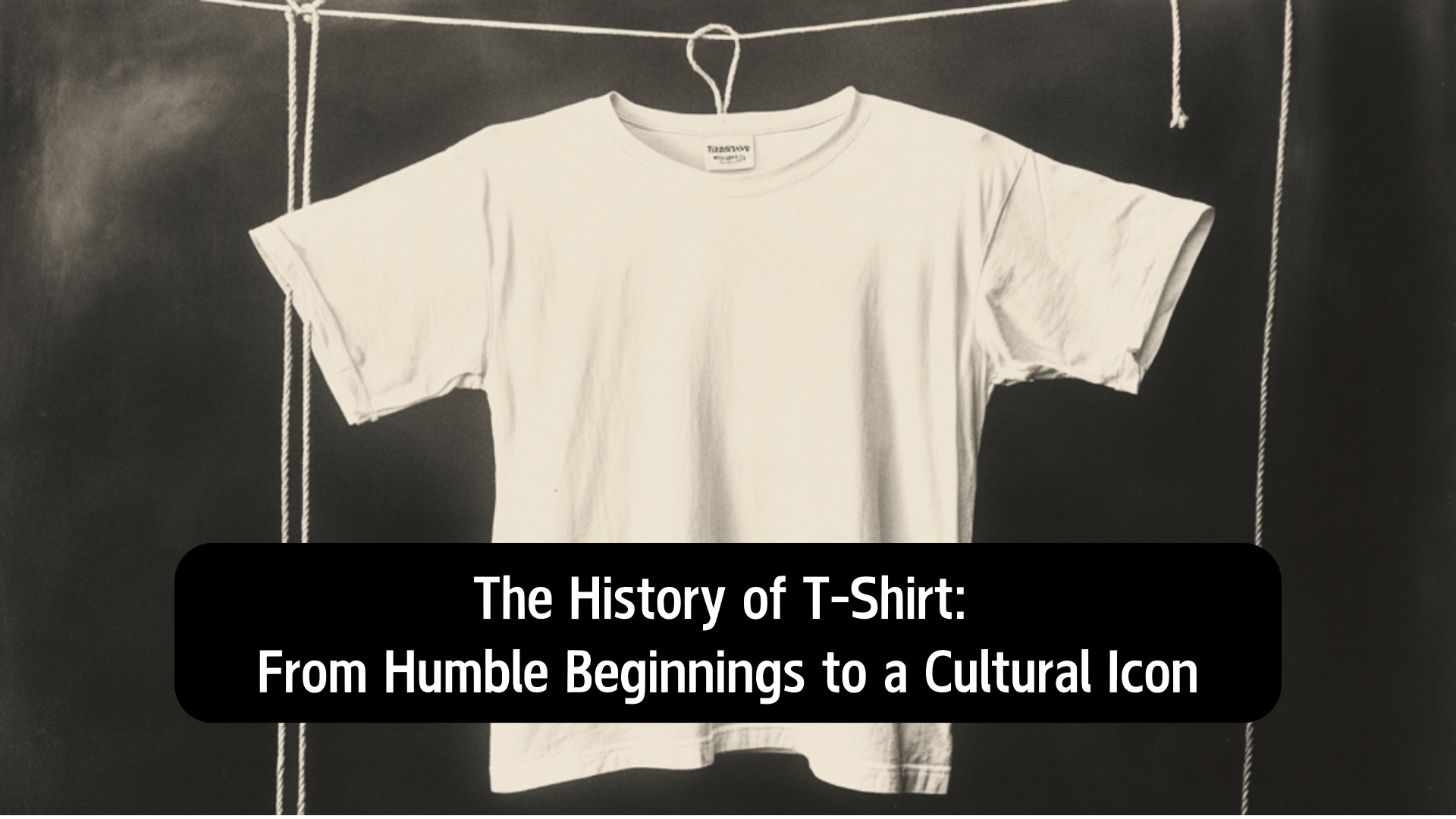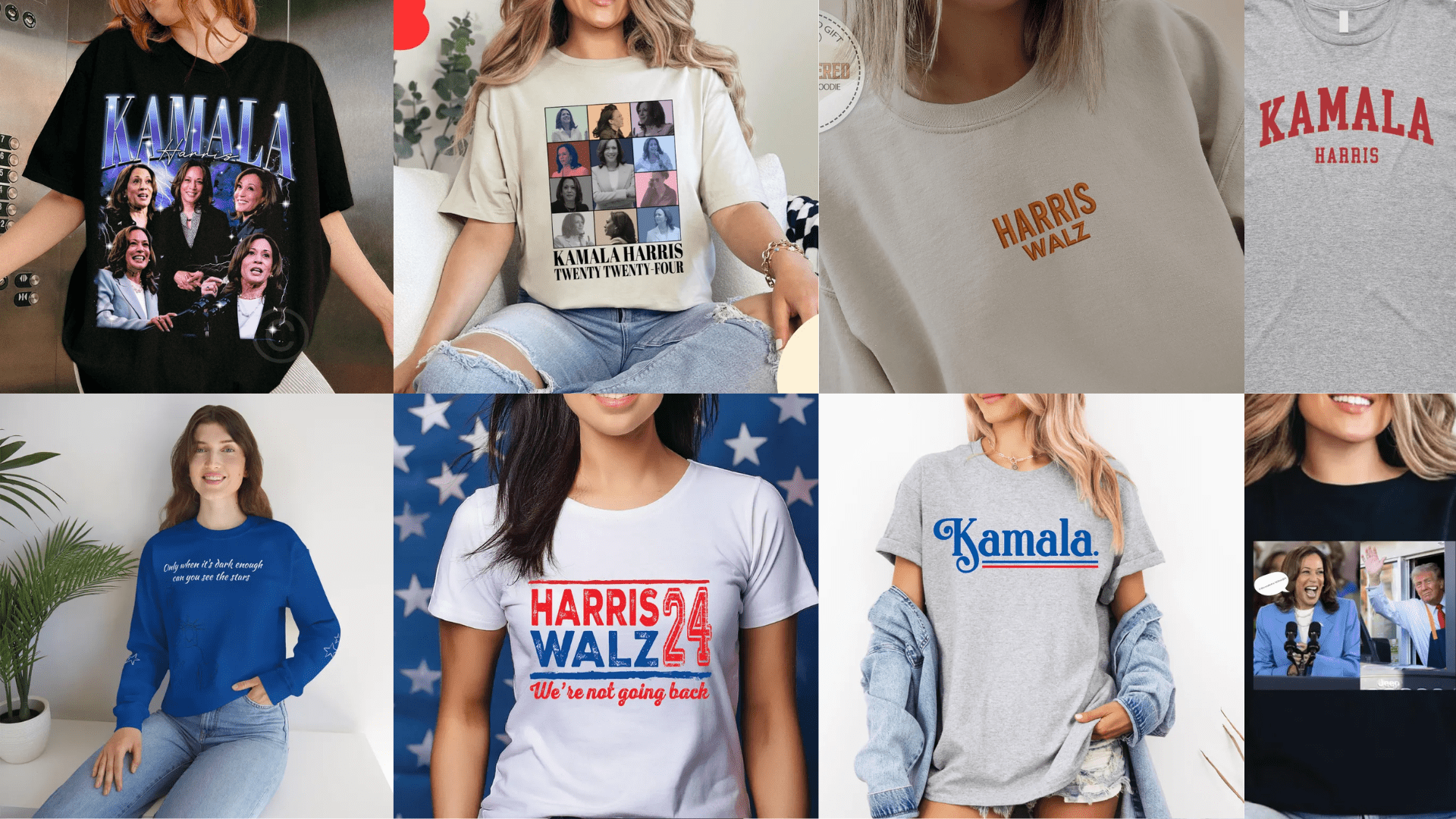T-shirts, a staple of casual fashion, have evolved far beyond their humble beginnings as undershirts. Over the decades, they have become powerful vehicles for self-expression, social commentary, and political activism. The journey of the T-shirt from functional garment to political canvas is a fascinating tale that intersects with history, art, and the ever-evolving dynamics of social change.
The Early Days of the T-Shirt
The T-shirt’s origins trace back to the late 19th and early 20th centuries. Initially adopted by workers and soldiers for its practicality, the T-shirt’s simplicity and comfort quickly made it a favorite among various demographics. By the mid-20th century, the garment had transitioned from underwear to outerwear, thanks in part to cultural icons like Marlon Brando and James Dean, who popularized its use in films.
However, the T-shirt’s role as a medium for political expression didn’t emerge until later in the 20th century, as technological advances in screen printing made it easier to mass-produce graphic designs on fabric. This development coincided with a period of significant social and political upheaval, laying the groundwork for the T-shirt to become a tool of activism.
The T-Shirt in the Civil Rights Movement
The 1960s were a watershed decade for civil rights in the United States. As marches, sit-ins, and protests captured the nation’s attention, T-shirts became an accessible and effective way to spread messages. Slogans like “I Am a Man”, referencing the Memphis Sanitation Workers’ Strike, were emblazoned on T-shirts, underscoring demands for dignity and equality. These shirts served as both personal statements and rallying cries, fostering a sense of unity among activists.
Anti-War and Counterculture Movements
The Vietnam War era saw the T-shirt emerge as a central icon of protest. From the famous “Make Love, Not War” slogan to shirts featuring peace symbols, the anti-war movement embraced the T-shirt for its simplicity and accessibility. These shirts provided a way for individuals to display their dissent against the establishment in a visual and impactful manner.
During this time, T-shirts also became a hallmark of the counterculture. Bands like The Grateful Dead and protest movements like Women’s Liberation utilized the medium to promote their causes. The 1960s and 70s firmly established the T-shirt as a wearable form of free speech.
The Punk Rock Era and DIY Politics
In the late 1970s and 1980s, the punk rock movement took T-shirt activism to new heights. Punk fashion, characterized by its raw, DIY aesthetic, often incorporated politically charged messages. Bands like The Clash and The Sex Pistols used T-shirts to critique capitalism, authoritarianism, and societal norms.
This era highlighted the T-shirt’s potential as a grassroots communication tool. Punk enthusiasts often created their own designs, cutting, painting, and stenciling messages onto shirts. This DIY approach emphasized the accessibility of the medium and underscored the idea that anyone could participate in political discourse.
T-Shirts in Global Movements
The power of the T-shirt as a political tool is not confined to the Western world. Around the globe, activists have harnessed the garment to amplify their messages. During the Arab Spring, for example, T-shirts bearing slogans like “#Jan25” (a reference to the Egyptian Revolution) were worn by demonstrators and shared widely on social media.
In South Africa, anti-apartheid activists used T-shirts to challenge the oppressive regime. Designs featuring Nelson Mandela’s face or slogans like “Free Mandela” became symbols of resistance and hope.
Political Campaigns and Branding
T-shirts also play a significant role in electoral politics. Campaigns have long used T-shirts to promote candidates and ideologies. One of the most iconic examples is Barack Obama’s 2008 presidential campaign, which featured Shepard Fairey’s “Hope” design. The image, printed on thousands of T-shirts, became a defining symbol of the campaign and a cultural phenomenon.
These shirts often serve as wearable endorsements, allowing supporters to visibly align themselves with a candidate or cause. The relatively low cost of T-shirts also makes them an effective tool for grassroots organizing, fundraising, and building a sense of community among supporters.
Controversy and the Limits of Free Speech
While T-shirts can be powerful tools for political expression, they are not without controversy. Governments, institutions, and even private entities have sometimes sought to censor or restrict politically charged designs. For instance, in some countries, wearing a T-shirt with a dissenting message can lead to arrest or persecution.
In the United States, debates over the limits of free speech have occasionally centered on T-shirts. Cases involving school dress codes or public demonstrations highlight the tensions between individual expression and institutional authority. Despite these challenges, the T-shirt remains a resilient symbol of free speech.
The Role of Technology and Social Media
In the digital age, the intersection of T-shirts and political messaging has expanded. Online platforms allow individuals to design and sell custom T-shirts, democratizing the process of creating and distributing political messages. Social media amplifies these efforts, enabling designs to go viral and reach global audiences.
Movements like Black Lives Matter and climate activism have effectively utilized T-shirts to promote their causes. Slogans such as “Black Lives Matter” and “There Is No Planet B” have become ubiquitous, serving as rallying cries for justice and sustainability.
The Economics of Political T-Shirts
The commercial aspect of political T-shirts is another layer of complexity. While T-shirts can raise awareness and funds for causes, they also raise questions about commodification. Critics argue that the sale of political T-shirts sometimes reduces activism to a consumer choice, diluting the power of the message.
Nevertheless, the revenue generated from these shirts often supports grassroots organizations, legal funds, and community initiatives, making them a valuable resource for movements operating on limited budgets.
Conclusion
The T-shirt’s evolution from a functional garment to a powerful tool for political expression underscores its versatility and enduring appeal. Across decades and continents, this simple piece of clothing has amplified voices, united movements, and challenged the status quo. As technology and culture continue to evolve, the T-shirt will undoubtedly remain a key player in the ongoing struggle for justice, equality, and freedom.
Whether worn on the frontlines of protests, in classrooms, or shared online, the political T-shirt serves as a reminder of the power of everyday objects to shape history and inspire change.



